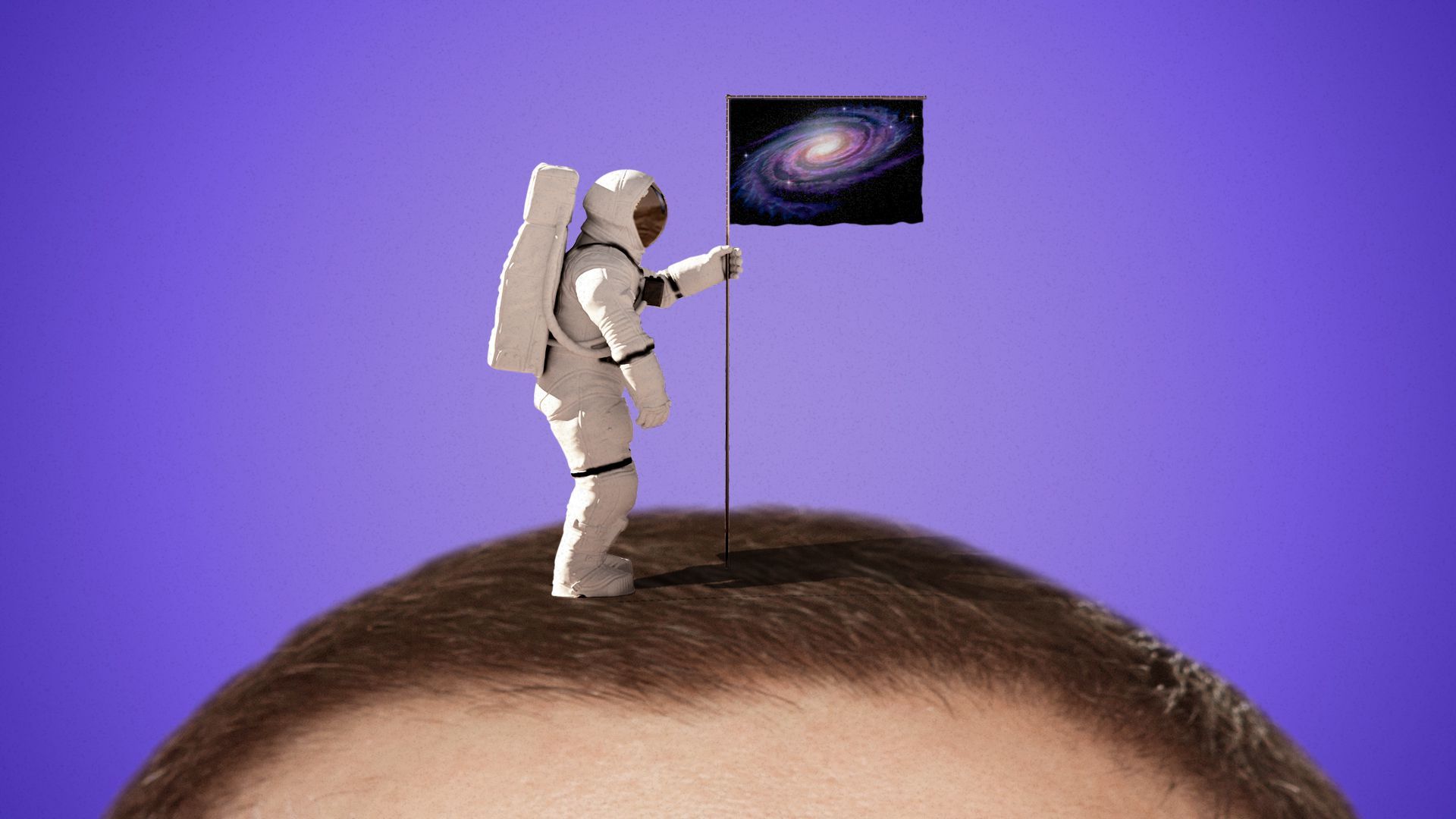How space sticks in the minds of amateur astronauts
Add Axios as your preferred source to
see more of our stories on Google.

Illustration: Megan Robinson/Axios
Coming back to Earth from orbit has been marked by a loss of anonymity, packed days and little time for reflection for the all-civilian Inspiration4 crew.
Why it matters: The astronauts' celebrity status is a sign amateur spacefaring hasn't arrived. The public still reveres those who take on the risks and rewards of space travel.
- Many in the space industry dream that one day flying to space won't just be for the ultra-rich or extremely lucky. Instead, heading to orbit will be more akin to flying on an airplane.
- If space travel is truly going to be similar to air travel, becoming an astronaut shouldn't necessarily impart celebrity status on individuals, says Inspiration4 mission commander Jared Isaacman.
Catch up quick: The Inspiration4 crew — Isaacman, Sian Proctor, Hayley Arceneaux and Chris Sembroski — flew to orbit for their three-day mission in mid-September.
- The launch was SpaceX's first all-civilian mission to orbit and acted as a proof of concept for the company as it tries to launch more people in the future.
- The crew performed experiments and flew sentimental items to orbit as they stared out the capsule's windows and worked together to monitor the health of the Dragon spacecraft throughout the flight.
- "You're seeing the Earth in a totally different way," Sembroski said. "And seeing sunrise and sunset, every 90 minutes, being able to see all parts of the world, in that period of time. People say the world's getting smaller, and when you go around it in an hour and a half, it feels really small."
Between the lines: Even though the four crew members are back on Earth, their days are still dominated by their time in space.
- This month, Isaacman, Sembroski, Proctor and Arceneaux — in their Inspiration4 jumpsuits — visited St. Jude Children's Research Hospital to dedicate a new building honoring their mission and the fundraising they did for the organization.
- Before the crew flew to space, I spoke to them regularly, one-on-one, for the second season of the "How it Happened" podcast.
- This interview was different. It took place in a studio at St. Jude with an audience of about 15 people, including their families and friends.
Details: For the first week or so after coming home, some of the crew members had dreams they were still in space, and all four of them still feel bonded as a team.
- Proctor — an artist and poet — said her art has been heavily influenced by being in space since coming back to the ground. She also mentioned that it will be hard to go back to her day job as a professor after having this life-changing experience and she's doubling down on her work as an artist.
- Arceneaux and Sembroski have been recognized when they've attended events or around their towns.
- "People say, 'What's it like to get back to normal?'" Sembroski told me. "Things aren't. They're going to be forever different."
The big picture: NASA astronauts and others have described being changed by their experiences flying to space for short and long missions.
- Astronauts talk about becoming environmentalists, for example, after returning to Earth because of what they experienced in space.
- One of the major marketing points for private missions is that everyday people will have the chance to experience that "overview effect" for themselves, which the Inspiration4 crew did.
What's next: Future private space explorers "will be different and look at the world differently coming back, but I don't necessarily know what we've experienced will be common amongst" future private astronauts, Isaacman says of their celebrity status.
- "If it's working right, it shouldn't be."
